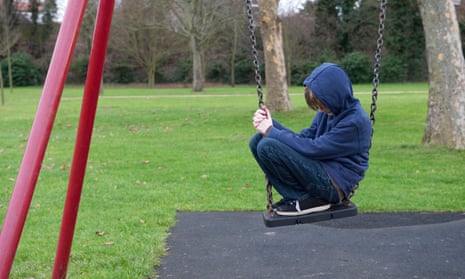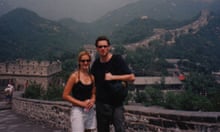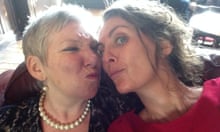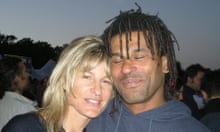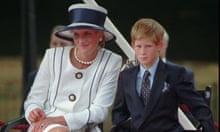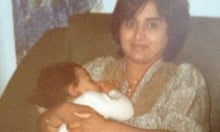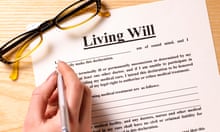Losing a parent is always difficult, but saying goodbye to your mother or father when you’re still a child brings its own unique kind of heartache.
It’s something Prince Harry touched on this week, when he said that he regrets not talking sooner about the loss of his mother, Diana, Princess of Wales, who died in a car accident when he was 12.
“It’s OK to suffer, as long as you talk about it. It’s not a weakness. Weakness is having a problem and not recognising it and not solving that problem,” Harry said.
We asked our readers to share their stories of grief. Here, 6 people explain what it’s like to lose a parent in childhood.
Jonathan Turner, 48, Leeds: I felt responsible for looking after my mum and my brother
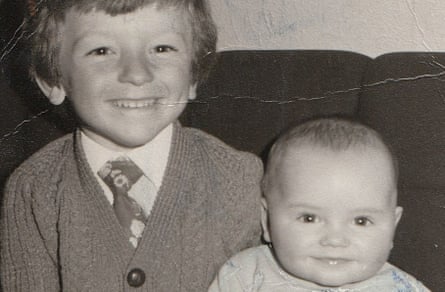
My dad died on Halloween 1974 and his cremation was on bonfire night. That sounds made up but it isn’t. I was six at the time. I didn’t play out for six months afterwards and I used to cry at the dinner table because I missed sitting opposite him. We’d just got a colour TV and my favourite programme was the Six Million Dollar Man. I remember writing in my exercise book at school that I wouldn’t be able to watch it with my dad any more. My mum went to pieces and I was just old enough to be aware that she was in a mess. I felt responsible for her, and I allowed her to lean on me. It might sound dramatic but I didn’t feel like I was able to be a carefree child because of this. I always felt like a crutch to mum and an auxiliary parent to my brother who was only one at the time our dad died.
At first, when my mum told me he was dead I felt numb. Although she told me that I cried after the actual day I don’t remember it. My mum had a few partners over the years, mostly who turned out to be pretty unreliable, and I never felt like any could replace my dad. One of the benefits of having a dead parent is that you can hold onto a nostalgic image of them. What I regret most is that I felt somehow responsible for my mum in a way that I needn’t have and sometimes I wish I’d just let her get on with it and had my own life.
If I could tell my younger self anything it would be to be a child. Adults have adult problems and sometimes things can go very wrong very suddenly, but it’s not up to you to clean up the mess.
Grace Mainwarin, 17, London: Be kind to those who are also grieving around you
I lost my father to terminal brain cancer when I was 15 in August 2014. It took two years between diagnosis and death for him to go, during this time he became paralysed down his left side and had a series of seizures. He died half way through my GCSEs, so it affected my relationships, mental health and just the normal way a teenager is supposed to grow up. It was devastating. I was dealing with something so serious that many people don’t have to cope with until they are much older. Something that stands out when you lose a parent as a child is how little your peers your own age can grasp what you’re going through. I felt very isolated. I was 13 when he was diagnosed so I could almost feel when I told other people my age what had happened that they were thinking of films they’d watched. Death is often so abstract for those who’ve never experienced it.
My dad was a very good person who was a hard-working lawyer and loved me and my sister so much. He was funny and kind, and I have so many fond memories of him. His courage and resilience during those two years was amazing. He kept on trying to walk, he kept on trying to adjust and adapt to his situation as much as he could, because he loved us so much.
If I could give myself advice at the time it would only to be kinder to those who were also grieving around me. I would say: “Don’t make their suffering worse. You need each other.”
Genevieve, 45, Kyneton, Australia: I have a huge reservoir of unresolved grief
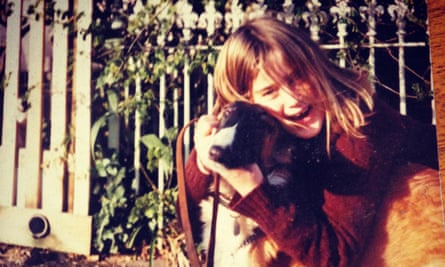
I was 12 when I lost my mother. I was the eldest of three and I have always felt lucky that I was able to have a few more years with her. I also felt responsible for looking after my siblings when she died, and feel I failed them because I was too young to handle this responsibility while also dealing with my own grief.
Mum and dad were divorced and my dad remarried three months after her death. We moved in with him but suddenly had a new stepmother. It was as if both my parents were taken away. What’s more, I was never encouraged to talk about my changed situation so I developed a very distant way of being.
I’m now 45 and realise that there is a huge reservoir of unresolved grief that is impacting on my relationships and has helped keep me in unhappy patterns. Talking is vital and it would be good to encourage this in children who lose their parents. I regret not talking more and wish I could be more open and trusting.
It can take a lot of effort to understand how grief impacts us years later. It is a hard road to confront these truths but probably even harder not to get help to deal with the losses that a parent’s death brings.
Rachel Martin, 40, Manchester: I regret my mum didn’t know my successes
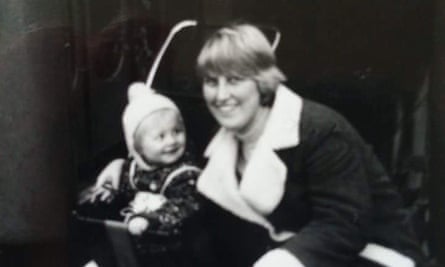
My mum died aged 31 when I was six years old. My sister was four years old. We were raised by my father and maternal grandparents. I remember being told that mum had died and gone to heaven. My sister told me not to cry – mum was there to have her leg made better then she would come back to us, but deep down I knew that death was final.
I have a few lovely memories of my mum but not many. I remember her singing in the kitchen, taking us to see our grandparents, and one Christmas morning when she wore a spotted navy dress for church.
I also remember her smell. After she passed away I would sit in her wardrobe smelling her clothes and handbags before my father got rid of everything. They smelled faintly of her perfume.
I remember the last time I saw her as I was being driven away from the hospital as she was waving goodbye. She was wearing a lime green dress and blue slippers.
I don’t know if I ever told my mum that I loved her. I wish I knew that.
I regret my mum didn’t see me grow up. She would never know my successes. She would never meet my wonderful husband or my wonderful son. I am so envious of my friends who have mums to share everything with.
If I could send a message to my younger self it would be: do not feel guilty or responsible for your mum’s death.
Tim, 45, Sheffield: I wish I’d told my mum how I missed my dad
My dad became ill when I was only just three, and died after a few months. It devastated my mum, but she doesn’t like to show her emotions, so it was never really discussed. Me and my younger brother were just told the facts in a very straightforward way and never asked how we felt about it. It was only much later that I discovered how badly it affected my mum, who I don’t think will ever get over losing the love of her life.
I have some sketchy memories of him coming home from work, and me being really excited to see my dad, but my strongest memories are of visiting him in hospital just before he died. It was obviously a significant event for everyone, and so stands out in my memory, although I didn’t know why at the time.
I don’t think I ever dealt with the grief, or was even aware that it was something I should feel. It was communicated to me in a very matter-of-fact way. Looking back now, I wish I had expressed myself to my mum, and told her I missed having a dad. I never said that to her because I was afraid of upsetting her.
Clive, 27, Bristol: My mum told me of her cancer over crumpets
In 1997, my mother told me of her cancer over crumpets. Needless to say, I was devastated or as much as one can be at such a young age. It’s not something I have ever really gotten over but it just becomes history. I became a shy kid as a result, although I try not to think too much about that time as it was so traumatic. I hated being the center of attention, with people asking me continuously if I was OK. They were all so kind but I just wanted to be alone. To this day I hate to be the center of attention.
My mum was lovely and softly spoken. She had red hair and wore flowery dresses and hats – I wish I could remember more but I don’t and that upsets me. My biggest regret is not going to see her when she had passed away, I just couldn’t do it, but I wish I had.
I try to stay positive, you either laugh or cry, I realise that life is too short and not to hold on too tightly to superficial things.
